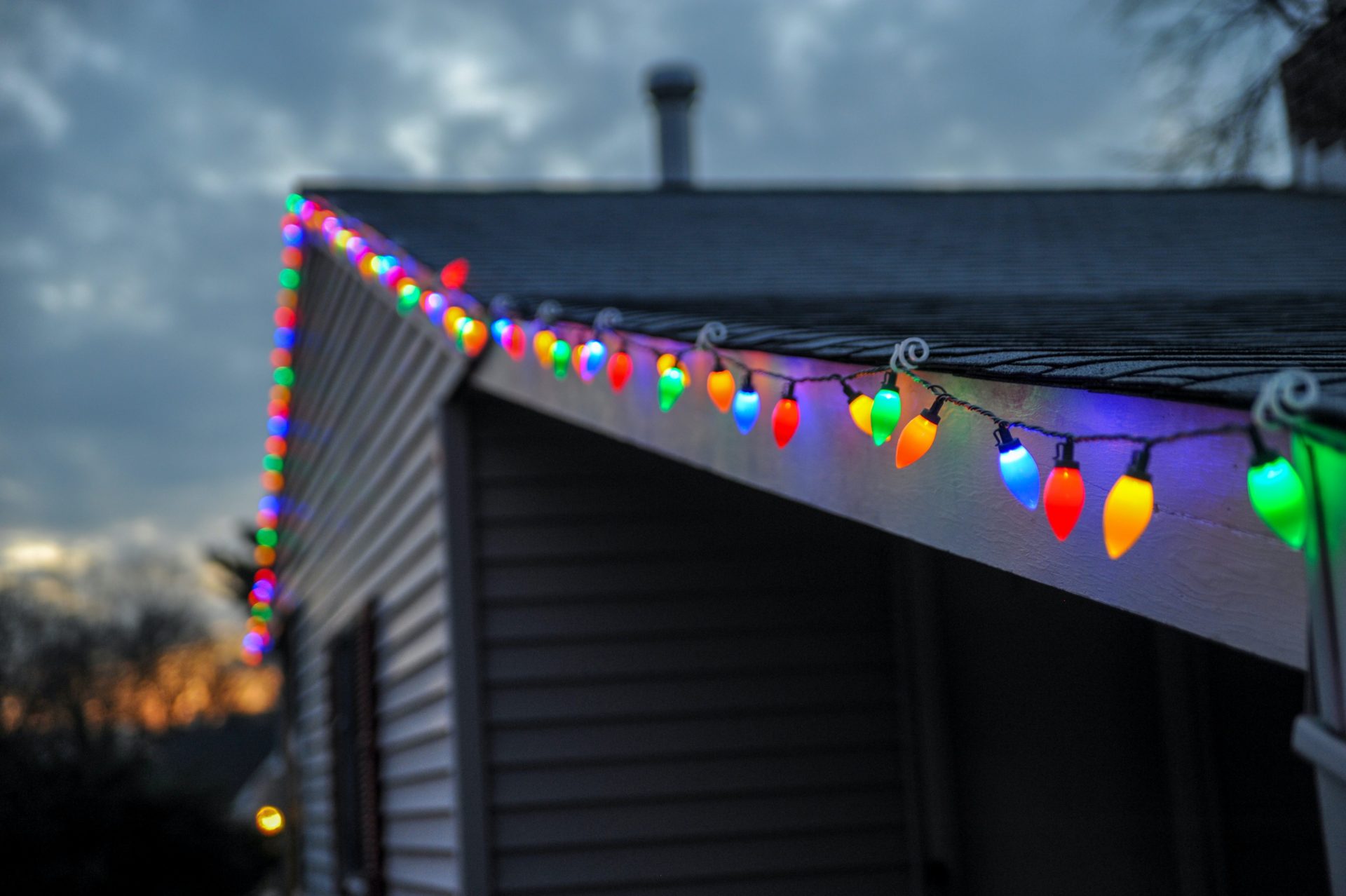Lights in the darkness
December 6, 2022
Does it seem like people have been putting up their Christmas lights earlier and earlier every year? In my area, Christmas lights went up the second the Halloween decorations came down. And some of the Halloween decorations were purple and orange strings of lights, much like the lights that grace so many houses this time of year. As the nights get darker, our broader culture, whether religious or secular, comes seeking to shine a light in the darkness. The lights that used to wait for the week of Thanksgiving are now showing up well before Advent—more than two months before Christmas. And it’s not just the strings of lights! The season for thinking about gift-giving has backed itself into July. Why?
Perhaps the reason for a longer Advent season is about something more than the physical darkness of the approach of astronomical winter. Maybe something more is driving our collective behavior than the cynicism of an economy that depends almost entirely on purchasing to measure its health. What if the darkness that is driving people to seek the lights earlier and earlier every year is the darkness of our times? Maybe we become aware of the darkness that surrounds us as we see our culture split by political party affiliation, as we witness children enter the holiday season hungry, and as we witness a climate in peril and feel powerless to effect real change. What if the longing for presents and lights is really the seeking of connection, belonging, meaning, and unity as human beings?
For Christians, the Advent season is very much about anticipating the return of the light of the world. We find ourselves longing to hear the words from John 1:3-5: “What has come into being in him was life, and the life was the light of all people. The light shines in the darkness, and the darkness did not overtake it.” We revisit the account of John the Baptist who came to witness to the light but was not the light. Through the gospel story, we know that the light of the world comes through living the way of Jesus.
Satisfying the longing for spiritual light in this world requires more of us that stringing up lights. Living the way of Jesus demands more than colorful, well-decorated homes with bountiful presents.
Several years ago, the BBC Television series “Doctor Who” opened their Christmas special with a voiceover saying, “On every world, wherever people are, in the deepest part of the winter, at the exact midpoint, everybody stops and turns and hugs. As if to say, ‘Well done. Well done, everyone! We’re halfway out of the dark.’ Back on Earth we call this Christmas.”[1] While shared sarcastically by a character who undergoes spiritual growth in the episode, something about the phrase “halfway out of the dark” rings true in describing the Advent and Christmas seasons. Seeking the Christ child in Bethlehem leads us halfway out of the dark. The eager anticipation of Christmas morning opens the pathway out of darkness. But arriving halfway out of the dark is not our goal. We long for a complete spiritual light.
Satisfying the longing for spiritual light in this world requires more of us that stringing up lights. Living the way of Jesus demands more than colorful, well-decorated homes with bountiful presents. After all, we are awaiting the one who was anointed to “bring good news to the poor” and “proclaim release to the captives… to set free those who are oppressed” (Luke 4:18). As we prepare to welcome the light that is such good news for those who are suffering in this world, what can we do to become part of that good news? What preparations can we make beyond finding the ideal presents for loved ones and stringing up festive lights?
In this Advent season, what might happen if we challenge ourselves to walk that path that will bring us fully out of the dark rather than resting at the halfway mark? What would it take to make the light of our souls shine so Christlike that the darkness could not overcome it? In our shopping, we could purposefully seek items for our loved ones created in places that provide a living wage and humane working conditions rather than supporting sweatshop conditions or abusively compensated prison labor. We can offer the gift of forgiveness, either personally or through organizations that seek to ethically eliminate medical debts by paying the collections accounts of others. We can give the present of clean air and water, by taking action to plant trees in deforested places, by reducing our plastic waste, and by advocating for energy policies that reduce (with the aim to eliminate) atmospheric harm. Our Advent preparations can prepare us to shine a complete light beyond our neighborhoods into the places most affected by economic and ecological injustice. May we find ourselves joyfully coming fully out of the dark through Advent and the coming of Christmas.
Rachael Lawrence, PhD, is senior editor, Judson Press. She is also classical musician.
The views expressed are those of the author and not necessarily those of American Baptist Home Mission Societies.
[i] “Doctor Who,” 2010 Christmas Special, “A Christmas Carol,” written by Moffat, Steven and Newman, Sydney, guest starring Michael Gambon, aired December 25, 2010 on the BBC.



